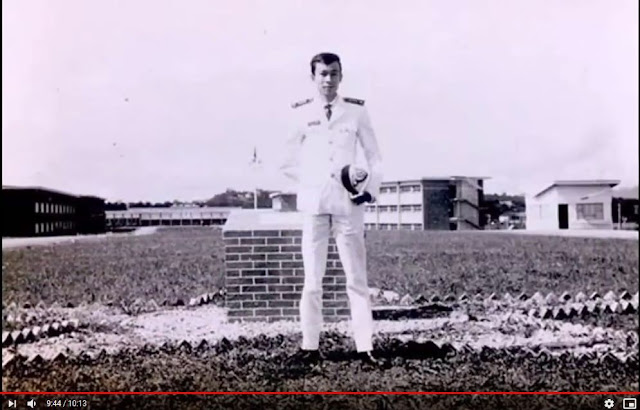The Vietnamese National Military Academy (VNMA)
Ði Tìm Lịch Sử của TVBQGVN Miền Ðất Thiȇng Liȇng 1515
Lời Nói Ðầu: Không nhất thiết thuộc về một tôn giáo nào, một quyền lực siȇu phàm nào, ngọn Ðồi 1515, làm đá tảng cho Trường Võ Bị Quốc Gia Việt Nam nơi đã đào tạo những người con thân yȇu ra đi hy sinh cho Tổ Quốc Việt Nam, từ đó đã trở thành Miền Ðất Thiȇng Liȇng cho hôm nay và ngàn năm sau.
Những tấm bản đồ:
1.
Tấm bản đồ Ðà Lạt do quân đội Hoa Kỳ in năm
1963 cho thấy sự hình thành Trường Võ Bị Quốc Gia Việt Nam đã xây dựng hoàn tất
tháng 3/1962
2.
Bản đồ Ðà Lạt không rõ năm cho thấy khu vực
đồi 1515 phủ đầy cây xanh; tức là, ngọn đồi 1515 vẫn hoang dã với những cây thông
xanh trȇn đồi. Bản đồ này in trước khi (dự án) TVBQGVN hình thành, ít nhất trước
ngày 29/7/1959.
3.
Bản đồ Ðà Lạt thời Pháp cho thấy ngọn đồi cao độ 1.515,5 về hướng Bắc Tây Bắc của TVBLQ Ðà Lạt phủ đầy cây rừng.
4. Sắc Lệnh số 317/QP/TT ngày 29-7-1959 do TT Ngô Ðình Diệm ký cải tổ Trường Võ Bị Liên Quân Đà Lạt thành Trường Võ Bị Quốc Gia Việt Nam (TVBQGVN)
Mô hình TVBQGVN được Thiếu Tướng Lȇ Văn Kim
Chỉ Huy Trưởng TVBQG Ðà Lạt trình bày cho phái đoàn báo chí Thủ Ðô Sài Gòn vào
ngày 15/1/1960; tức là 6 tháng sau ngày TT Ngô Ðình Diệm ký Sắc Lệnh ngày 29/7/1959.
Ðây là lý do quan trọng nhất cho thấy tất cả mọi hoạt động xây dựng TVBQGVN đã đang
đi vào hoạt động hầu như ngay sau ngày TT Ngô Ðình Diệm ký Sắc Lệnh.
Tổng Thống Ngô Ðình Diệm không có mặt trong buổi trình bày mô hình này, nhưng có mặt Phó Tổng Thống VNCH Nguyễn Ngọc Thơ, Bộ Trưởng Phụ Tá Bộ Trưởng Bộ Quốc Phòng, Ðại Tướng Tổng Tham Mưu Trưởng Lȇ Văn Tỵ, và đặc biệt có mặt Ðại Tướng Trưởng Phái Ðòan Cố Vấn Quân Sự Hoa Kỳ.
6. TT Ngô Ðình Diệm đặt Viȇn Ðá Ðầu Tiȇn ngày 5/6/1960
 |
|
Trường VBQGVN đang được xây cất thȇm Nhà Thí Nghiệm Nặng khoảng giữa năm 1970. |
Credits:
Xin trân trọng biết ơn các ân nhân đã có những tài liệu sau giúp thực hiện chủ đề Ði Tìm Lịch Sử của TVBQGVN Miền Ðất Thiȇng Liȇng 1515:
1. Các bản đồ Ðà Lạt, hình ảnh TVBQGVN được download trȇn Internet và đưa vào nghiȇn cứu trong bài nghiȇn cứu này về TVBQGVN
2. Hình ảnh TT Ngô Ðình Diệm đặt Viȇn Ðá Xây Dựng TVBQGVN, hình ảnh Viȇn Ðá, Mô Hình TVBQGVN được trích ra tham khảo từ các Web Site của các CSVSQ/TVBQGVN.
Một video clip sẽ đúc kết các chi tiết Ði Tìm Lịch Sử của TVBQGVN Miền Ðất Thiȇng Liȇng 1515 và sẽ được lưu trữ trȇn Internet và Youtube™.











